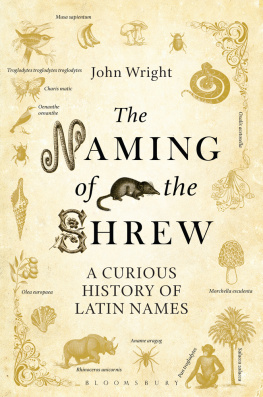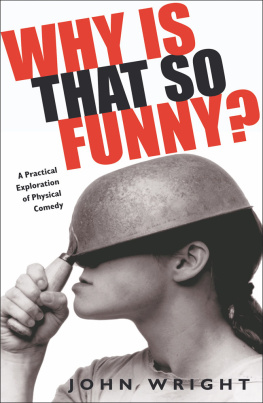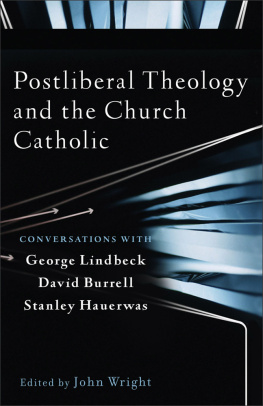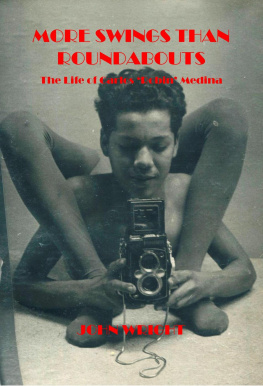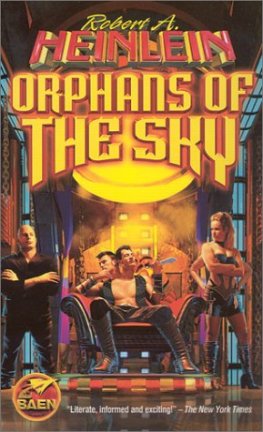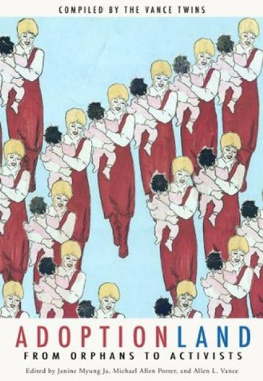John C. Wright
Orphans of Chaos
To the memory of Harry Golding, a man of sterling moral character, generous wit and charm, endless patience, and titanic intellect; this tutor of St. Johns College in Annapolis had many students who admired him with a profound love, of whom this authors is not the least.
Let it be not imagined by any reader that the rather sinister educational institution depicted in this fantasy is meant to resemble the authors alma mater, for the spirit of St. Johns is one in bitter enmity to tyranny; the task of St. Johns is to make free men out of youths by means of books and balanced judgment: Facio liberos ex liberis libris libraque.
The estate grounds were, at once, our home, our academy, and our prison. We were outnumbered by campus staff, and by the imposing old Georgian and Edwardian edifices. There were more mares in the stables than there were students in the classrooms. It was only the five of us.
The estate was bound to the North by the Barrows, to the West by the sea cliff, to the East by the low, gray hills of the Downs. What bound us to the South is a matter of dispute.
Colin claimed the forest was the only boundary to the South. His story was that the wood had no further side, but extended forever, with the trees growing ever taller, the shade ever darker, and beasts within it ever more dangerous, huge, and savage. He said that beyond the worlds end the trees were titanic, the darkness was from Tartarus, and the beasts were vast enough to swallow the sun and moon.
When the two of us broke into the Headmasters library, I climbed up to wipe with my skirt the dust from the glass-covered map that stood above the volumes and antique folios of the oaken bookshelf. The map showed Wales to the North and Cornwall to the South. To the East were English towns famous from history and legend: Bristol and Bath, Hastings and Canterbury and Cambridge. There was London, queen of all cities. Beyond the White Cliffs of Dover was the Channel and Calais on the coast of France, gateway to the continent, to places rich and bright and beautiful and ever so far away.
Colin rolled his eyes, which were large, startlingly blue, and very expressive. And you believe our world is the one depicted on that map? His voice dripped silky contempt.
He ducked his head to peer up at my under-things, but scampered back when I aimed a kick at his head.
Quentin, on the other hand, implied the Old Road (which ran through the forest) constituted the boundary to the South. He argued that the Straight Tracks were older than the Roman road built atop them; older than the standing stone we found among the gray hills of the Downs; older than the green mound on the South Lawn.
He spoke of ley lines, and energy paths and mysterious connections between certain hilltops, standing stones, the crumbled ruins of the tower on a rock in the bay we all called the lighthouse. He had charts to show their alignments with various rising and setting stars on certain dates. He used an astrology chart from the back of one of Mrs. Wrens magazines to show, with some plane geometry, why the Straight Tracks defined the transition point between different astral domains. The argument was incomprehensible, and that made it easier to believe.
Where Colin was loud, Quentin was quiet, indrawn, unassuming. He never claimed to be a warlock, and therefore we all thought he was.
Vanity and I saw him on the Manor House roof tiles one October midnight, talking to a winged shape too large to be a crow. It took flight, and we saw its outline against the moon.
Victor was more logical. He argued that the Southern boundary was the new highway B-4247, which led from the coast to Oxwich Green. This new highway was on our side of the forest, and cut through it in places. Following the highway toward the bay led to the fishing village of Abertwyi, from which the island of Worms Head could be seen. Victor said the highway right-of-way followed the legal boundary as defined in the courthouse records for Shire of West Glamorgan, which listed the metes and bounds of the Estate.
We knew Victor had disappeared when the group all went to Mass one Sunday in Abertwyi-town. We did not know how he got over the stone wall surrounding the churchyard and courthouse unseen, or picked the lock on the massive iron grate, forged into fanciful shapes of leaves and black roses, which blocked the courthouse doors. Victor just was able to do things like that.
We know what he had been looking for, though. We all knew: records of our parents.
I was nave to expect our records to be there, he confided in me curtly. The adoption records and genealogies only apply to men.
I cocked an eyebrow at him, and gave him an arch look. And what about women, then?
The word refers to both sexes.
Does it, really? Youll never talk me into going with you to the Kissing Well, if you sit there and say I look to you like a man.
Define your terms. We are certainly human. We are certainly not Homo sapiens.
And, after a moment, he said, Actually, I do not recall asking you about going to the Kissing Well. Your comment seems to be based on a false assumption.
Victor was, in some ways, the smartest one of the five of us. In other ways, he was just so stupid.
I should explain that, during that summer, the chapel attached to the estate had been undergoing repairs for water damage from the rains. When Mr. Glum, the groundskeeper, brought Victor, dragged by his ear, back to stand before the Headmaster, there was a consultation in the library among the Board of Trustees. The next Sunday we went to Mass in our own chapel, water-streaked walls behind the saints covered with tarp, scaffolding blocking the stained-glass windows, and everything. Further expeditions to Abertwyi were canceled.
Victors argument was brief and solid. A boundary was a fiction defined by law; there were documents reciting the applicable law; and they named the new highway as the boundary. Q.E.D.
Vanity was of the opinion that if we did not know where the boundary was, it could not affect us.
Her argument ran along these lines: we had been warned something bad would happen to us if we went over the boundaries, or tarried too long on the far side. But boundaries do not exist in the material world. A rock or a tree on one side or the other of an imaginary line is still a rock or a tree, is it not?
Therefore the boundaries only exist, as Vanity put it, in our fancy.
Think of it this way, she would say, between various ejaculations and digressions. If everyone woke up tomorrow and agreed we should spell dog C-A-T, why, dogs would be cats as far as we could tell. But the dogs would not care what we called them. If everyone woke up and said, Vanity is the Queen of England! why, then, Id be the Queen of England, provided the army and the tax gatherers were among the people who said it. If only half the army said it, wed have a civil war.
The boundary to the South was no different. As one moved South there were trees upon the south lawn, a few, and then more, and then scattered copses, then thick copses. At some point, you would find yourself in a place with no grass underfoot, where no one had stepped before, and see trees which had never felt the bite of an axe. But where exactly was the dividing line?
The trees were thick around the servants quarters, the stables, and the pump house. They were thicker beyond the old brick smithy. They were thicker still beyond the even older green mound connected with local King Arthur tales; but that mound was bare of trees itself, and one came from the shadows of silent leaves into a wide round area of surprising sunlight, where four standing stones held a tilted slab high above wild grass. The stones were gray, and no moss grew on them, and no sunlight ever seemed to warm them.


